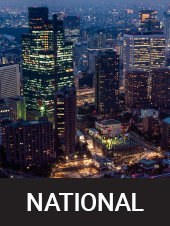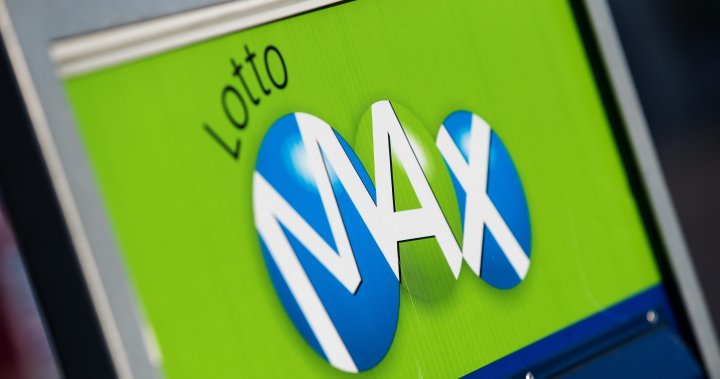The Canadian government awarded billions of dollars in contracts earmarked for Indigenous enterprises without always requiring bidders to prove that they were First Nations, Métis, or Inuit, a Global News investigation has found.
A program that now helps Indigenous businesses land more than $1.6 billion in contract awards annually, the Procurement Strategy for Indigenous Business (PSIB), used to rely largely on an honour system, said Anispiragas Piragasanathar, a spokesman representing federal departments.
Indigenous Services Canada (ISC), which currently vets applicants, and the departments that preceded it going back to 1996, did not always demand status cards or other documents from vendors until 2022, according to Piragasanathar’s statement.
“In years past,” he explained, “businesses were required to sign an attestation” that they were Indigenous. They also faced the possibility of an audit, he said.
In 2022, ISC tightened the requirements by demanding documentation from new applicants, Piragasanathar told the joint investigation. He did not explain why.
The Trudeau government has directed billions of dollars to Indigenous businesses over the past two years, but never addressed the PSIB’s underlying problems, according to a collaborative investigation between Global News and researchers at First Nations University of Canada. (Learn more about how the investigation unfolded.)
The program has recently come under fire from federal MPs for negligent auditing practices that potentially allow non-Indigenous businesses to exploit the system at the expense of Indigenous enterprises — and their communities.
In the absence of consistent scrutiny, the joint investigation revealed widespread reports of non-Indigenous enterprises using questionable methods to get around the PSIB’s minimum requirements. The program stipulates that Indigenous peoples must have 51 per cent ownership and control of the business.
The alleged schemes include a non-Indigenous company paying an Indigenous-identifying person to pose as its owner or using an Indigenous company as a front to access the PSIB.
Indigenous leaders and organizations have warned federal officials about the “shell companies” taking advantage of the PSIB since 1999, but ISC has not closed these gaps.
The program’s guidelines also do not clearly define who qualifies as Indigenous, and Indigenous Services Minister Patty Hadju told the CBC in February that vetting is challenging.
Billions of dollars in public funds — and Ottawa’s attempts at economic reconciliation — are at stake.
Beginning in 2022, the Trudeau government ordered federal workers in up to 96 departments to begin purchasing at least five per cent of all goods and services from Indigenous businesses.
Contracts awarded to Indigenous businesses skyrocketed from $100 million in 2018 to $1.6 billion — 6.3 per cent of all eligible federal spending — in fiscal year 2022-2023, boasts a recent government report.
Thawennontie Thomas, co-owner of LaFlesche Inc., a plastics manufacturing company based on Kahnawake Mohawk Territory near Montreal, said it’s “commonly known” among Indigenous executives that non-Indigenous businesses are taking advantage of the PSIB.
In the community of Indigenous federal contractors, he occasionally spots competitors who set off “red flags,” he said, because he and his team never meet the Indigenous owner.
And when LaFlesche applied to join the PSIB early in the pandemic, he said, ISC did not require proof of his or his co-owners’ Indigeneity.
“No question asked,” Thomas said.
Piragasanathar responded that ISC had asked LaFlesche for documents proving its Indigeneity, and had always required proof of Indigeneity. But, he noted, “the department’s methods of verifying eligibility have changed over the years and ISC cannot speak to past practices.”
And ISC employees have been working to verify that the more than 2,800 businesses listed in the Indigenous Business Directory are indeed eligible for the program, Piragasanathar said, referring to the registry that federal workers use to search for Indigenous suppliers.
Piragasanathar did not respond directly when asked how many non-Indigenous enterprises ISC’s checks have revealed.
If ISC employees find any, those businesses “would no longer be eligible for procurement set asides for Indigenous business,” he said.
Little information is available publicly about whether the PSIB has uplifted First Nations, Métis and Inuit communities though it has been in operation for nearly three decades.
Indigenous leaders asked in 2019 for this information to be posted publicly. ISC said it would look into ways to collect this data.

Get daily National news
Get the day’s top news, political, economic, and current affairs headlines, delivered to your inbox once a day.
Adding to the lack of transparency, the federal government’s public-facing contract databases are unreliable — they include countless duplicate entries that can inflate totals and provide a misleading picture of how Ottawa spends taxpayer dollars.
To determine which Indigenous communities benefit from the PSIB, the collaborative team identified the government’s top 10 Indigenous contractors over the past five years and asked them which communities their owners belonged to. (Learn more about how the investigation unfolded.)
This question is generally welcome among Indigenous people. For many citizens of the more than 600 federally recognized First Nations, Métis and Inuit communities, the term “Indigenous” does not capture the diversity of their languages, cultures and traditions.
Five of the 10 contractors responded with specific information about their First Nation, Métis or Inuit links, information about another was posted publicly, and four declined to speak with reporters or they provided brief answers without specifying the community or group they belonged to.
This does not mean that the four businesses did not legitimately qualify for the PSIB or that they do not have Indigenous heritage. They are under no obligation to respond to reporters’ questions.
Those four contractors received an estimated $455 million in total federal contract awards since the Trudeau government ramped up the PSIB in 2022. The $455 million total includes all federal contract offers, as reflected in the government’s reports on the PSIB. A contract award does not represent the amount that the federal government actually paid to a business.
Ottawa-based businesses Maverin Inc. and Nisha Technologies Inc. respectively received offers worth an estimated $260 million and $50 million, according to estimates based on information that Public Services and Procurement Canada supplied to the joint investigation.
Both companies supply IT consultants, and Nisha sells computer hardware and software. Maverin scored deals to supply 41 million rapid tests for COVID-19 in 2022 worth about $190 million, according to a recent Global News investigation. (The total for Maverin includes a second business, Maverin Business Services Inc.)
During the same period, the tech firm PureSpirIT Solutions Inc. landed about $70 million in offers, and ADRM Technology Consulting Group secured around $75 million, according to the Treasury Board of Canada Secretariat data that reporters examined.
The four companies declined to comment on whether the investigation’s estimates were accurate.
One of Maverin’s former owners, who controlled the company until January 2024, stated that ISC had asked them for proof of Indigeneity when they applied to the PSIB and that Maverin complied with the request.
The analysis also revealed that during the two fiscal years, all but one of the 10 businesses were Ottawa-area enterprises that sold IT consulting services, which is the federal government’s biggest spending category.
Examining the reporting, David Chartrand, the elected president of the Manitoba Métis Federation, said, “It defies logic to think that there would be such a heavy concentration of First Nations, Inuit or Red River Métis-owned and -operated businesses in the Ottawa area.”
ISC spokesman Piragasanathar disputed the joint investigation’s analysis, noting that in the 2022-2023 fiscal year, “over 300 different Indigenous businesses were awarded contracts valued over $10,000.”
“A business being located in Ottawa is not indicative of it having many or few connections to Indigenous communities,” he argued.
ISC employees will sometimes face thorny questions as they examine the documentation of the businesses in the IBD.
In 1996, when officials at what was then called Indian and Northern Affairs Canada created the PSIB’s precursor, the Procurement Strategy for Aboriginal Business, they stated that businesses did not have to be located on reserve.
Soon, Indigenous leaders started sounding alarms about a lack of benefits to their communities.
Federal officials never addressed that issue as they made adjustments to the PSIB over the years. In consequence, the program’s guidelines specify that not only do members of federally registered First Nations, Métis and Inuit communities qualify, but also people recognized as Indigenous by an “established Indigenous community.” The program’s guidelines do not define this key phrase, opening the door to interpretation.
Muddying things further, ISC administrators can also make exceptions to these regulations and admit an applicant they deem Indigenous.
Widespread confusion among Canadians about what “Métis” means adds another layer of complication, according to Merelda Fiddler-Potter, an assistant professor at First Nations University of Canada and a citizen of the Métis Nation of Saskatchewan.
Having “one random ancestor” among hundreds “does not make you Métis,” Fiddler-Potter explained.
It would be like a Canadian claiming citizenship in a European nation that a single great-great-grandparent immigrated from centuries ago, she said.
“That’s a paper Indian,” Fiddler-Potter said.
Since the PSIB’s launch, the number of people self-identifying as “Métis” has grown rapidly, according to Statistics Canada.
Some newly formed Métis groups issue ID cards to their members, hoping that the group may someday win federal recognition. Police investigations also periodically reveal individuals and groups selling fake Indian status cards, allegedly used to access benefits.
Earlier this year, a Global News reporter with no Indigenous ancestry went to the website of the Québécois group Métis Nation of the Rising Sun (MNRS), filled out a form, and paid $65.
Like federal offices years ago, the group did not ask for proof. When the reporter called the MNRS and expressed doubt about her ancestry, the administrator replied, “If you say you are Métis, we will believe you.”
Within days, her card arrived in the mail.
A card certifying that the holder is a member of the Métis Nation of the Rising Sun, a Quebecois group that is not federally recognized.
Global News
Quebec courts have rejected the group’s claim to Indigeneity, and the Métis National Council does not recognize it.
ISC told Global News that MNRS members do not qualify for the PSIB. But when reporters asked ISC about another such group that had allegedly issued false status cards, ISC’s spokesman said that it “cannot say definitively” that it had never accepted the group’s card.
A spokesperson for the MNRS noted that cardholders must swear that they are Métis when they apply, and “are responsible for their actions.”
‘Rent a feather’ arrangements
The Trudeau government says that it has stepped up its scrutiny of its suppliers, including establishing the Office of Supplier Integrity and Compliance in May.
When it is fully up and running, the office’s employees may look into reports about non-Indigenous businesses in the PSIB.
Leo Hurtubise, one of Thomas’s co-owners at LaFlesche, told the joint investigation that his employees frequently field calls from non-Indigenous entrepreneurs seeking joint venture arrangements.
Almost all of these offers are legal, but a few may not meet PSIB requirements, Hurtubise said. According to the program’s rules, the joint venture’s Indigenous owner must do a third of the work.
Hurtubise said these calls are “regrettable,” describing the PSIB as a program that could uplift many Indigenous communities.
Indigenous leaders and organizations have warned federal officials about phantom joint ventures since 1999. Less well known are so-called “rent-a-feather” arrangements described by three Indigenous business leaders.
In such a deal, a person who identifies as Indigenous agrees to sign on as a non-Indigenous business’s purported owner in exchange for a small percentage of a contract or for a flat fee, rather than actual ownership of the company. Deliberately giving any misleading information to federal procurement workers is illegal.
The business leaders who described this arrangement were unaware of each other’s interviews with Global News.
Parliamentary investigations into the scandal-ridden ArriveCan app for travellers revealed a third option.
Dalian Enterprises Inc., one of the Ottawa-area staffing companies on the list of the top 10, won contracts to find workers to build the ArriveCan app.
Dalian took a commission and then outsourced the work to a non-Indigenous staffing company, Coradix Technology Consulting Ltd., which was operating in the same office suite as Dalian, according to a parliamentary investigation.
ISC verified that Dalian qualified for the PSIB, then barred it from further contracting in March due to questions about possible double-billing and other questionable practices. RCMP investigations are ongoing.
When asked for his thoughts on these workarounds, Inuit leader Natan Obed called them a form of identity theft.
These practices are the “next stage of colonization,” said Obed, president of Inuit Tapiriit Kanatami, which fights for Inuit rights and land claims.
Non-Indigenous companies taking advantage of programs meant for Indigenous competitors cause “the destruction of Indigenous peoples in the same way that land theft was in the past,” he said.
The department’s spokesman responded that ISC is working with First Nations, Métis and Inuit leaders to transfer IBD control to Indigenous organizations.
He added that the federal government has not yet determined who will be taking it over.
With research assistance from:
First Nations University of Canada, Indigenous Journalism and Communication Arts
Researchers: Celeste Bird, Luis Felipe Mussalém, Emilie Wren and Cat Zens
Supervising faculty: Patricia W. Elliott
University of King’s College School of Journalism
Researchers: Gökçe On and Hannah Sangster
Supervising faculty: Pauline Dakin





